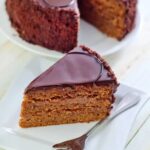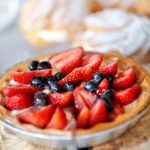Are you looking to elevate your cake decorating skills? Look no further, as we guide you through the process of making the perfect buttercream icing for all your decorating needs. In this article, we will explore the essential ingredients and step-by-step instructions on how to make buttercream icing.
We’ll also provide tips for achieving the perfect consistency, flavor variations, and expert advice on decorating cakes with buttercream. Whether you are a beginner or an experienced baker, mastering buttercream icing is an essential skill that can take your cake decorating to the next level.
Buttercream icing is not just a simple frosting – it is a crucial element in cake decorating. The smooth texture and ability to hold its shape make it a versatile option for creating various designs and decorations on cakes.
From simple swirls to intricate piping work, buttercream icing is a staple in any baker’s arsenal. If you’ve ever wondered how to make buttercream icing recipe for cake decorating, look no further as we delve into everything you need to know about this fundamental component of cake decoration.
Throughout this article, we will cover everything from the basic ingredients needed for making buttercream icing to troubleshooting common issues that may arise during the process. We aim to equip you with all the knowledge and techniques necessary to elevate your cake decorating game using buttercream icing. So let’s dive in and uncover the secrets behind creating the perfect buttercream icing for your next show-stopping confection.
Essential Ingredients for Making Buttercream Icing
When it comes to making buttercream icing, having the right ingredients is essential in achieving the perfect flavor and texture. The main components of a classic buttercream icing recipe include unsalted butter, confectioners’ sugar, vanilla extract, and heavy cream or milk. These simple ingredients come together to create a smooth and luscious frosting that pairs well with various cake flavors.
Unsalted Butter
One of the key ingredients in buttercream icing is unsalted butter. It’s important to use unsalted butter so that you can control the amount of salt in your icing. Make sure to have the butter at room temperature before using it to ensure that it creams properly with the sugar.
Confectioners’ Sugar
Also known as powdered sugar, confectioners’ sugar is a must-have ingredient for making buttercream icing. It provides the sweetness and structure to the frosting. Sifting the confectioners’ sugar before adding it to the recipe can help prevent lumps and result in a smoother consistency.
Vanilla Extract
Adding vanilla extract enhances the flavor of your buttercream icing, giving it a delicious aroma and taste. It’s important to use pure vanilla extract for the best results. You can also experiment with different flavor extracts such as almond or citrus for unique variations.
In addition to these main ingredients, various recipes may call for additional flavorings or add-ins such as cocoa powder for chocolate buttercream or fruit purees for fruity variations. By understanding how each ingredient contributes to the overall taste and texture of your buttercream icing, you can create custom flavors that will elevate your cakes to new levels.
Step-by-Step Instructions on How to Make Buttercream Icing
Buttercream icing is a versatile and essential element in cake decorating, and learning how to make it from scratch can elevate your baked creations. To make buttercream icing, you will need the following essential ingredients: unsalted butter, confectioners’ sugar, vanilla extract, and heavy cream or milk.
To begin making buttercream icing, start by beating the unsalted butter in a mixing bowl with an electric mixer until it becomes light and fluffy. Gradually add in the confectioners’ sugar, mixing well after each addition. This will create a smooth base for the icing.
Once the butter and confectioners’ sugar are well combined, add in the vanilla extract and continue mixing. For the right consistency, you may also need to add a small amount of heavy cream or milk to achieve the desired texture. Beat the mixture until it becomes creamy and smooth.
To ensure that your buttercream icing is free from lumps or air bubbles, it is important to scrape down the sides of the bowl during mixing. This will result in a silky-smooth icing that is perfect for decorating cakes.
| Ingredients | Measurements |
|---|---|
| Unsalted Butter | 1 cup (226g) |
| Confectioners’ Sugar | 4 cups (480g) |
| Vanilla Extract | 1 tsp (5ml) |
Tips for Achieving the Perfect Consistency and Texture
One of the most crucial aspects of making buttercream icing is achieving the perfect consistency and texture. This will determine how well your icing will hold up when decorating a cake, as well as the overall mouthfeel of the finished product. To achieve the ideal consistency and texture, it is important to pay close attention to the ratio of ingredients and follow some key tips.
First and foremost, it’s essential to start with softened butter when making buttercream icing. Room temperature butter will blend more easily with other ingredients, resulting in a smooth and creamy texture. Additionally, sifting your powdered sugar before adding it to the mixture can help prevent lumps and ensure a silky finish.
Another tip for achieving the perfect consistency is to add liquid ingredients such as milk or cream gradually. This will allow you to control the thickness of your icing and avoid making it too runny. On the other hand, if your icing ends up too thin, you can always add more powdered sugar to thicken it up.
Achieving the perfect consistency and texture also involves proper mixing techniques. Overmixing can lead to a greasy or gritty texture, so it’s important to mix until all ingredients are just combined. Keeping these tips in mind will help you create buttercream icing that is not only visually appealing but also deliciously smooth and velvety.
| Ingredients | Ratio |
|---|---|
| Butter | 1 cup |
| Powdered Sugar | 4 cups |
| Milk or Cream | 2-4 tablespoons |
Flavor Variations and Add-Ins for Customizing Your Buttercream Icing
When it comes to buttercream icing, the flavor options are virtually endless. Adding different flavorings and mix-ins can take your buttercream from basic to extraordinary, and the customization options are perfect for matching the icing to the cake’s flavor profile or theme.
Basic Flavorings
For a classic addition to your buttercream, consider using vanilla extract. This simple addition can bring out the natural sweetness of the icing without overpowering the overall flavor. Other common extract choices include almond, lemon, and peppermint, all of which can add a unique twist to your buttercream.
Add-Ins for Texture and Taste
If you’re looking to add some texture and depth to your buttercream icing, consider incorporating crushed nuts, shredded coconut, or even mini chocolate chips. These add-ins not only provide a delightful crunch but also introduce new flavors that complement the sweetness of the icing.
Natural Flavors
For a more natural approach, consider adding fruit purees or zest to your buttercream. Fresh berries, citrus fruits, or even bananas can bring a burst of freshness and color to your icing while offering a subtle hint of their respective flavors.
Customizing your buttercream icing with these flavor variations and add-ins allows you to create unique and delicious combinations that perfectly complement your cake’s taste and style. Don’t be afraid to experiment with different ingredients until you find the perfect custom blend for your next cake decorating project.
Important Tools and Equipment Needed for Decorating With Buttercream Icing
When it comes to decorating cakes with buttercream icing, having the right tools and equipment is essential for achieving professional-looking results. Here are some important items you will need:
- Offset spatula: An offset spatula is a must-have tool for smoothing and decorating cakes with buttercream icing. Its angled blade allows for easy spreading and precise control when working on the cake’s surface.
- Piping bags and tips: These are crucial for creating intricate designs and patterns on your cake. Invest in a variety of piping tips to achieve different effects, such as borders, flowers, and writing.
- Turntable: A turntable is an indispensable tool for cake decorating. It allows you to easily rotate the cake as you work, ensuring even coverage and smooth edges.
- Bench scraper: This tool is useful for achieving sharp, clean edges on your frosted cake. It also helps to scrape off excess icing for a polished finish.
- Cake combs or scrapers: These tools are used to create textured designs on the sides of the cake. They come in various patterns, allowing you to customize the look of your cake with ease.
Having these essential tools in your arsenal will make the process of decorating with buttercream icing much more efficient and enjoyable. With the right equipment at your disposal, you’ll be able to bring your creative cake decorating ideas to life with professional-looking results every time.
Expert Tips for Decorating Cakes With Buttercream Icing
When it comes to decorating cakes with buttercream icing, there are a few expert tips that can take your creations to the next level. Here are some valuable tips for achieving beautiful and professional-looking cake decorations:
1. Use the Right Piping Tips: Different piping tips create different designs, so it’s important to have a variety of tips on hand. A star tip can create rosettes and borders, while a round tip is perfect for writing or creating simple dots. Experiment with different tips to find the patterns and designs that work best for your cake decorating style.
2. Chill Your Cake Before Decorating: To make the icing easier to work with and ensure clean lines, it’s helpful to chill your cake in the refrigerator before you start decorating. Chilling the cake helps the buttercream set and prevents any crumbs from mixing into the icing as you work.
3. Practice Proper Pressure Control: When piping buttercream icing onto a cake, it’s important to have control over the pressure you apply to the pastry bag. If you squeeze too hard, you may end up with uneven or bulging lines. Practice applying even pressure to achieve smooth and consistent decorations.
4. Add Details with Different Tools: In addition to piping tips, consider using other tools to add details and textures to your buttercream decorations. Offset spatulas can create beautiful swirls and textures, while stencils can be used to add intricate patterns onto the surface of the cake.
By incorporating these expert tips into your cake decorating process, you’ll be able to create stunning designs and achieve professional-looking results with buttercream icing. Remember that practice makes perfect, so don’t be afraid to experiment and try new techniques.
Troubleshooting Common Issues When Making Buttercream Icing
Even with the best recipe and guidance, sometimes issues can arise when making buttercream icing. One common problem that many bakers encounter is having a runny or too thin consistency. This can happen if too much liquid, such as milk or flavoring, is added to the mixture. To fix this issue, you can simply add more powdered sugar until the desired thickness is achieved.
Another issue that may occur is having lumps in your buttercream icing. This can be caused by not properly mixing the ingredients together or using cold butter. To remedy this, make sure to mix the ingredients thoroughly and use room temperature butter to ensure a smooth and creamy texture.
Lastly, some decorators might find that their buttercream icing becomes too greasy or oily. This can happen if the butter used is too soft or warm when mixing. To fix this, you can place the mixture in the refrigerator for a few minutes to allow it to firm up slightly before continuing to decorate your cake.
By being aware of these common issues and knowing how to troubleshoot them, you can ensure that your buttercream icing turns out perfect every time. With a little practice and patience, you’ll be able to create beautifully decorated cakes without any hiccups along the way.
Conclusion
In conclusion, mastering the art of making buttercream icing is essential for any aspiring cake decorator. As discussed in this article, the key to creating the perfect buttercream icing lies in using high-quality ingredients and following the step-by-step instructions carefully. By understanding the importance of each ingredient and achieving the right consistency and texture, you can elevate your cake decorating skills to a whole new level.
Additionally, it’s important to remember that flavor variations and add-ins can further enhance your buttercream icing, allowing you to customize it according to your preferences or the theme of the cake. Whether you prefer classic vanilla buttercream or adventurous flavors like chocolate or fruit-infused ones, experimenting with different flavors can truly set your creations apart.
Furthermore, investing in the right tools and equipment for decorating with buttercream icing is crucial for achieving professional-looking results. From piping bags and tips to offset spatulas and turntables, having the right tools at your disposal will make the process much smoother and more enjoyable.
Overall, creating the perfect buttercream icing for cake decorating requires practice, patience, and attention to detail. With dedication and creativity, anyone can master this versatile frosting and take their cake decorations to new heights. So go ahead, practice these techniques, experiment with flavors, and let your imagination run wild as you embark on your buttercream icing journey.
Frequently Asked Questions
What Is the Best Type of Buttercream Frosting for Decorating Cakes?
The best type of buttercream frosting for decorating cakes is American buttercream. This type of buttercream is simple to make and holds its shape well, making it ideal for piping borders, flowers, and other decorations on cakes. It has a smooth texture and can be easily flavored and colored to suit the cake’s theme.
What Are the Ingredients in Cake Craft Buttercream Icing?
The ingredients in Cake Craft Buttercream Icing typically include powdered sugar, shortening, water, corn syrup, salt, natural and artificial flavors, mono- and diglycerides, polysorbate 60, sodium stearoyl lactylate, potassium sorbate (preservative), citric acid, and color additives. These ingredients work together to create a creamy and easy-to-use icing for decorating cakes.
How Do You Make Buttercream Thicker for Piping?
To make buttercream thicker for piping, you can simply add more powdered sugar to the frosting until it reaches your desired consistency. Alternatively, you can also incorporate a small amount of cornstarch or corn syrup to help thicken the buttercream without affecting its flavor too much.
Another option is to refrigerate the buttercream for a short time before using it; this can help it firm up slightly for easier piping.

Welcome to my blog about home and family. This blog is a place where I will share my thoughts, ideas, and experiences related to these important topics. I am a stay-at-home mom with two young children. I hope you enjoy reading it! and may find some helpful tips and ideas that will make your home and family life even better!





